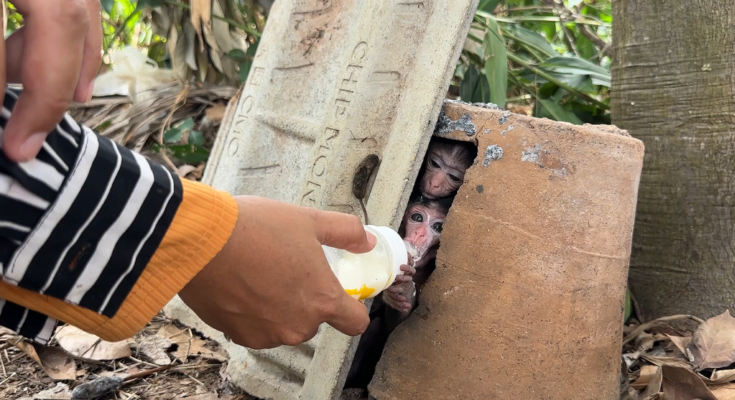In the wild, baby monkeys depend heavily on their mothers for care and nourishment during the first stages of their lives. Just like human infants, baby monkeys are born without the ability to feed themselves, relying on their mothers to provide them with the essential nutrients needed to grow and thrive. The most vital component of their diet in these early months is milk, which not only nourishes but also strengthens their immune systems, ensuring they can survive and develop into strong, healthy monkeys.
Mother monkeys typically produce milk rich in proteins, fats, and essential nutrients. These nutrients are tailored to meet the specific needs of their newborns, ensuring proper development. Milk provides not only the caloric energy necessary for rapid growth but also the antibodies that help protect the young monkeys from illnesses and infections. This is crucial as baby monkeys are particularly vulnerable to disease, and the protective elements in the milk offer a strong defense during their early days.
The bond between a baby monkey and its mother during breastfeeding is not just about nutrition—it is also about emotional and social development. Nursing creates a connection that goes beyond feeding, fostering trust and a sense of security for the infant. It also plays a role in the development of the monkey’s brain, as the act of suckling and being in close physical contact helps stimulate their sensory and motor skills.
In cases where a baby monkey is orphaned or unable to nurse from its mother, human caregivers or wildlife experts may intervene. They may provide milk substitutes specifically designed for primate babies. While this can be a necessary and life-saving measure, it is never quite the same as nursing from the mother. Milk formulas are not able to completely replicate the unique properties of a mother monkey’s milk. Therefore, human intervention should always be considered a temporary solution, with the ultimate goal being to reintroduce the infant to a natural environment where it can bond with other monkeys and receive care from its mother or a surrogate.
In conclusion, milk is not only a source of nutrition for baby monkeys but also an essential part of their survival, growth, and emotional well-being. It provides the building blocks for physical health and supports their emotional bonds, ensuring that they grow up to be healthy and capable individuals. Whether in the wild or through human intervention, the role of milk in the early stages of a baby monkey’s life is undeniably crucial.



